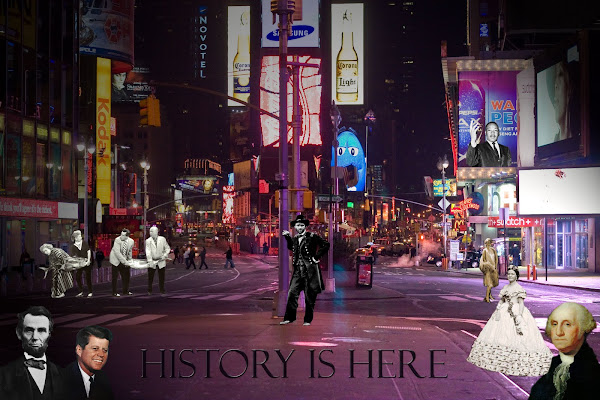Sunday, March 21, 2010
I come bearing history
One of the assignments for my Abraham Lincoln history class last semester was to write a paper describing a week of Lincoln's presidency using telegrams, journal entries, speeches, and other historical documents we found on the internet. While I would not recommend this assignment for a high school setting, I did find it fascinating to look at history from a perspective that I hadn't considered before. Twenty years ago, the best historical documents available in schools were usually found in classroom textbooks, or library reference books. This left many history teachers with very limited resources with which to teach students about primary historical documents. Then came the Internet, and with it a prodigious amount of historical resources. What was once available only to historical scholars, can now be accessed with the touch of a button. (Rewiring the History and Social Studies Classroom) Now teachers and students can have access to history's best primary documents ranging from the Declaration of Independence, to the Treaty of Versailles, to Martin Luther King Jr.'s I Have a Dream Speech. The Library of Congress is an excellent website for primary sources of all kinds ranging from political cartoons, to newspapers, and my personal favorite, an extensive collection of documents from Abraham Lincoln's Presidency. The Library of Congress is a website which I foresee myself using a lot in my classroom. (www.loc.gov) There is also a plethora of secondary sources, and ideas for how to teach history. One of my favorite teacher websites is actually a website for civics, but it is a perfect example of what kinds of resources and ideas are available for teachers on the Internet.(Economics) I used a modified version of the Ice Cream Stand lesson for my 8th grade civics practicum. Instead of making sundaes, the students made advertisement posters for their vocabulary words, and were required to purchase the supplies from the other groups. It was a huge hit, and as a teacher I found it to be helpful because I don't know much about economics. The regular classroom teacher actually uses the Internet quite a bit in his classroom for various activities. He doesn't use the textbook at all. I myself am not a particularly big fan of textbooks. They're bulky, heavy, they take up a lot of space, and consume a lot of resources, especially since publishers insist on updating them so often. While I do believe that they are a great source for factual reference, they don't present history in an interesting way. They are completely lacking the story part of history, which in my opinion is the best part. That's where you as the teacher with the help of the resources on the Internet come in. You supply the story, the Internet supplies the historical documents, other stories that you can add to yours, and ideas for how to get students involved in learning.
Subscribe to:
Post Comments (Atom)

No comments:
Post a Comment